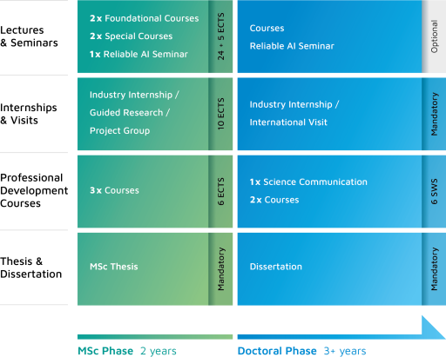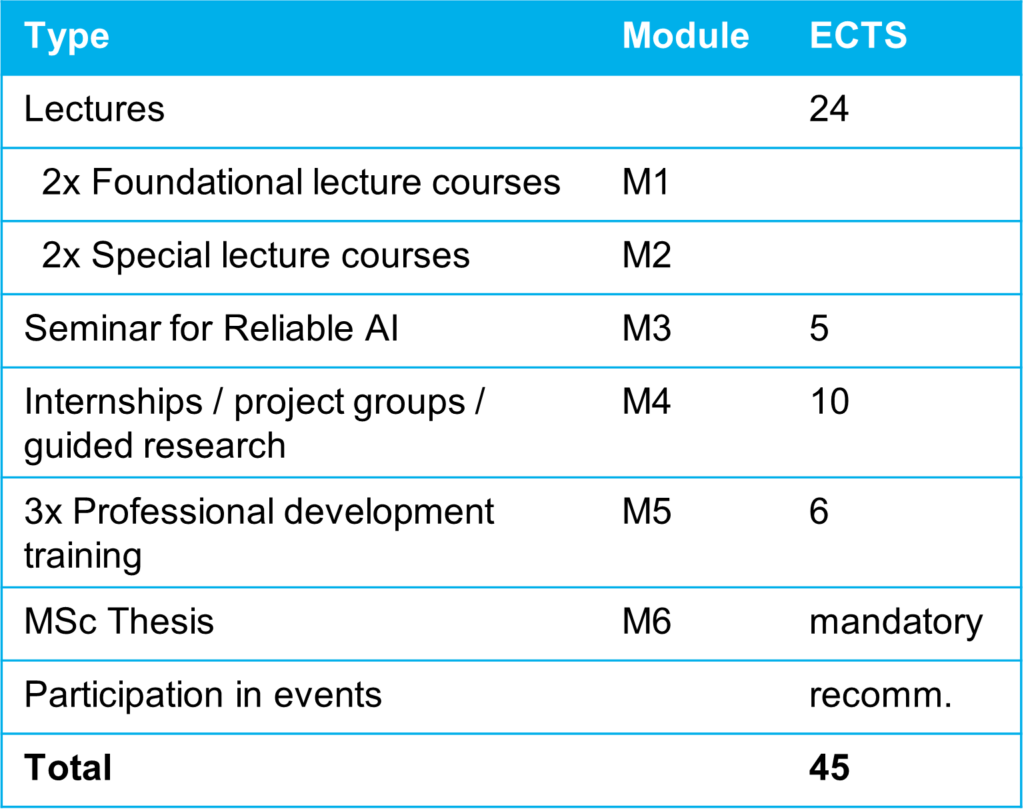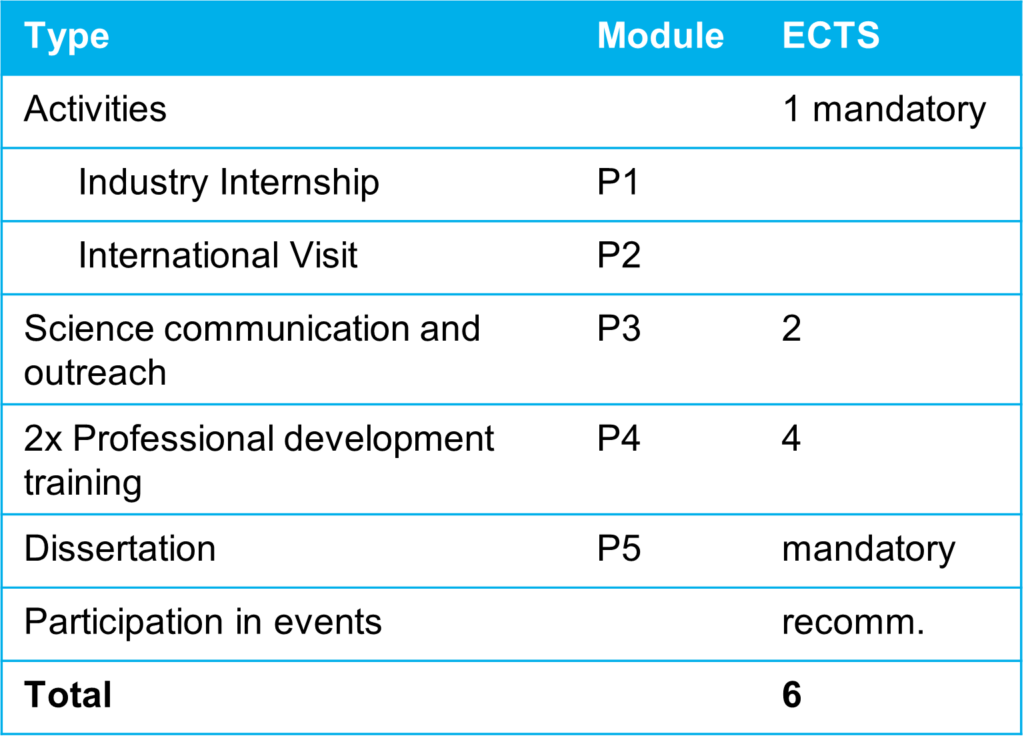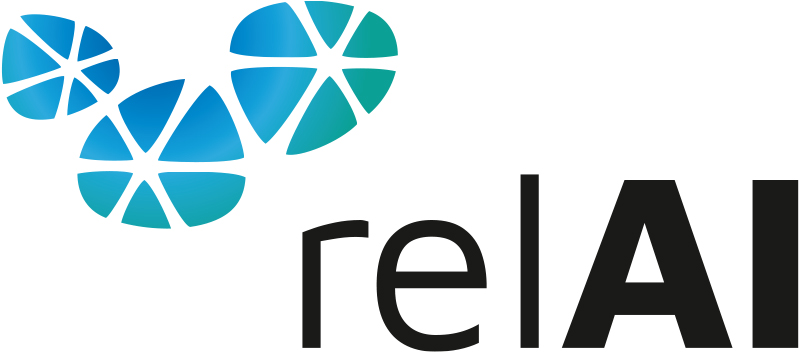Our curriculum takes full advantage of the complementary expertise at the partnering institutions, and enables a flexible integration into the respective study programs. The program's structure encompasses four different areas as illustrated by the graphic below. In each area, students may choose from a selection of courses or other offers to find the option suited best to their field of study and individual plan. After successful completion, the students receive a certificate from relAI, confirming their theoretical and applied skills in reliable AI.

In Lectures & Seminars, the research and training program focuses on the mathematical and algorithmic foundations of reliable AI along with domain knowledge in three core application domains: medicine & healthcare, robotics & interacting systems, and algorithmic decision-making. While not mandatory for doctoral researchers, we encourage participation for those joining relAI for their PhD. Industry internships and international stays enable early exposure to real-life challenges and to transfer research results. In addition, corresponding professional development courses highlight the societal implications of AI research and offer training in science communication and related subjects. Last, the MSc thesis and PhD dissertation adress topics related to the field of reliable AI and relAI fellows from industry and academia guide and support the students in completing their degree.
MSc Curriculum Overview

MSc students enroll in master programs offered at TUM and LMU and courses mandatory for relAI will be recognized for their MSc program and vice versa. The table illustrates the courses and trainings (M1-6) counting towards the ECTS required to earn the relAI certificate.
Students must obtain at least 24 ECTS across 5 courses comprising 2 foundational lecture (M1) courses, 2 special lecture (M2) courses, and a reliable AI seminar (M3). This seminar and the AI Journal Club, where all MScs and PhDs from the same cohort will discuss and present recent research in reliable AI, are central team building elements of relAI.
(M4) Internships / project groups / guided research are elements to gather industry exposure and apply the knowledge in practical applications.
(M5) Professional development training covering topics such as ethics, unconscious bias, and entrepreneurship -- supported by the Munich School of Philosophy, LMU Innovation & Entrepreneurship Center, and UnternehmerTUM.
(M6) A MSc thesis along the themes of relAI and (co-)supervised by one of its participating fellows.
Moreover, participation in events such as relAI’s retreat and seasonal symposium is strongly encouraged for MSc students.
PhD Curriculum Overview
Doctoral students enroll in PhD programs offered at TUM and LMU. They should also have previously completed a set of courses during their MSc phase comparable to the relAI MSc courses (see above). The curriculum is built on the following modules:
(P1) Industry internships of around three months or equivalently application-driven research projects.
(P2) International visits of around three months to obtain research experience abroad at top AI centers.
(P3) Science communication and outreach include training elements, engagement in the school-hosted relAI-Blog, and participation in outreach events.
(P4) Professional development training includes the aspect of good scientific practice / responsible research as a mandatory component. Other courses are offered with the support of UnternehmerTUM, LMU Innovation & Entrepreneurship Center, and the respective graduate centers / schools.
(P5) A dissertation summarizes the obtained research results, with the primary advisory being one TTAC member.
Additionally, participation in events such as relAI’s retreat and seasonal symposium is expected for doctoral researchers.

